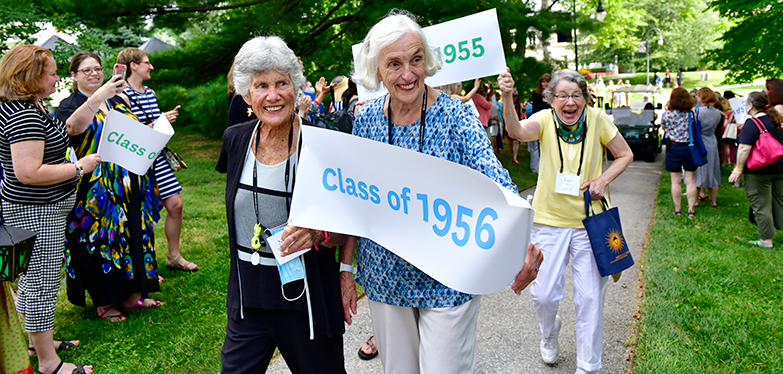Retirement Planning
It’s really never too early – or too late – to do retirement planning.
On the one hand, the younger you are, the more you benefit from a longer period of time to accumulate assets and invest them, as well as think about how best to spend them once you finally retire. Even if you make some mistakes in the process or become preoccupied with other matters for a year or two, time will generally be your friend.
If, on the other hand, you’ll soon be retiring or have perhaps retired already, you’ll want to use the time and resources you have wisely. Still, with a few adjustments here and there, you may well be able to make your retirement years more enjoyable.
Whatever your circumstances, be sure to consult professionals with expertise in areas such as:
- investments
- taxes
- budgeting and cash management
- various types of insurance
- estate planning
- medical, social, and other services geared toward older persons
Don’t overlook ways of supporting Bryn Mawr that result in retirement cash flow. Especially if you are precluded from making additional contributions to an IRA or a qualified retirement plan, a charitable life-income plan can supplement existing arrangements. Here are some of your choices:
- A charitable gift annuity makes favorably-taxed payments to you (or to you and your spouse) for life, plus you receive an immediate income tax charitable deduction, providing tax savings if you itemize. If you’re still working, you can defer the start of the payments, whereas if you are retired, you’ll likely want the payments to begin immediately.
- A charitable remainder trust is similar to a gift annuity in some respects, since both can provide income for life, but offers greater flexibility. This can be very appealing if you don’t need additional income now but would like to secure a source of payments in retirement, and also provides an immediate income tax charitable deduction.
- A contribution to Bryn Mawr College’s pooled income fund produces a current income tax charitable deduction, providing tax savings if you itemize. As with a mutual fund, your gift is invested with gifts made by others, and you receive your share of the fund’s earnings for life. The payments are taxable as ordinary income.
- If you are age 70½ or older, you can make a Qualified Charitable Distribution (QCD), also known as a charitable IRA rollover, to Bryn Mawr directly from your traditional or Roth IRA of up to $111,000 in 2026, and the gift will not be counted in your income. Once you are 73 or older a QCD will satisfy your annual minimum required distribution and permit a tax-free gift of up to $111,000 to Bryn Mawr. Separately, drawing on assets in an IRA or a qualified retirement plan to make current gifts to Bryn Mawr can sometimes make sense for anyone over age 59½, although careful planning is required.
- As retirement planning vehicles such as defined contribution plans, tax-deferred annuities, and many IRAs contain income that has never been taxed, you'll want to devote attention to your beneficiary designations. Previously untaxed amounts left to family members and other individuals will be taxed when received by them but are not subject to tax when received by Bryn Mawr. Likewise, tax savings can be combined with providing for heirs when certain retirement plan assets are used for a gift annuity or a charitable remainder trust at the end of your life.
Now that we’ve given you plenty to think about, please let us know if we can be of any assistance to you and your advisors!


